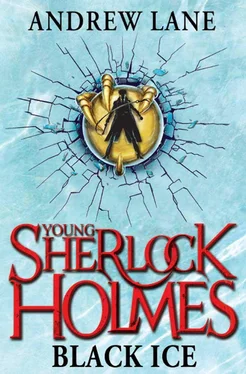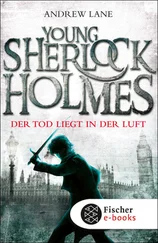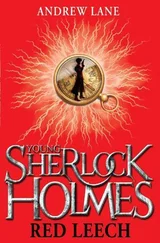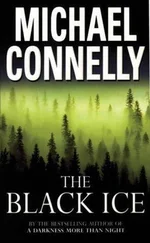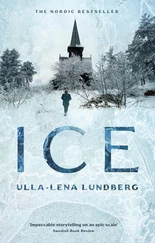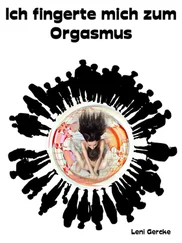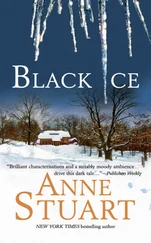Andrew Lane - Black Ice
Здесь есть возможность читать онлайн «Andrew Lane - Black Ice» весь текст электронной книги совершенно бесплатно (целиком полную версию без сокращений). В некоторых случаях можно слушать аудио, скачать через торрент в формате fb2 и присутствует краткое содержание. Жанр: Исторический детектив, на английском языке. Описание произведения, (предисловие) а так же отзывы посетителей доступны на портале библиотеки ЛибКат.
- Название:Black Ice
- Автор:
- Жанр:
- Год:неизвестен
- ISBN:нет данных
- Рейтинг книги:3 / 5. Голосов: 1
-
Избранное:Добавить в избранное
- Отзывы:
-
Ваша оценка:
- 60
- 1
- 2
- 3
- 4
- 5
Black Ice: краткое содержание, описание и аннотация
Предлагаем к чтению аннотацию, описание, краткое содержание или предисловие (зависит от того, что написал сам автор книги «Black Ice»). Если вы не нашли необходимую информацию о книге — напишите в комментариях, мы постараемся отыскать её.
Black Ice — читать онлайн бесплатно полную книгу (весь текст) целиком
Ниже представлен текст книги, разбитый по страницам. Система сохранения места последней прочитанной страницы, позволяет с удобством читать онлайн бесплатно книгу «Black Ice», без необходимости каждый раз заново искать на чём Вы остановились. Поставьте закладку, и сможете в любой момент перейти на страницу, на которой закончили чтение.
Интервал:
Закладка:
The cab clattered across Westminister Bridge, and Sherlock’s attention was caught by the various boats being rowed along or across the dirty brown mass of the water. ‘Were Diogenes and Plato alive at the same time?’ he asked, remembering the book that his brother had given him as a gift when he sailed to America – Plato’s The Republic.
‘They were,’ Crowe answered, ‘and they didn’t get on. Ah’ll tell you the story sometime.’
At the north side of the river the cab turned left, then right on to a broad, tree-lined avenue. At the top of the avenue, Sherlock recognized Trafalgar Square, with its memorial to Lord Nelson. He’d seen that the last time he’d come to London.
A few seconds later, the carriage stopped. The two of them descended to the pavement, and Crowe paid the driver the few pence fare.
They were still on the broad, tree-lined avenue, but at the top, where it curved round to form another road. A small door was set into a wall ahead of them. A brass plaque by the side of the door read The Diogenes Club in copperplate script.
Crowe rapped on the door with the head of his cane. A few moments later, it swung open. He led the way in, ducking his head to miss the low lintel. Sherlock followed.
They were standing in a narrow hall with oak-panelled walls and a marble floor. A stairway led up to the first floor, and an open door to one side gave access to what looked like a large room full of green leather armchairs. The silence was so oppressive that Sherlock could almost feel it pressing on his ears. The ticking of a clock somewhere in the shadows echoed around the hall.
The man who had opened the door was small and weaselly. He was dressed immaculately in a blue footman’s uniform and had the look of a former soldier. Sherlock was no expert, but the man held himself rigidly upright, and his boots were shined to a degree where Sherlock could probably have seen his face in them. Crowe handed him a card. He glanced at it, nodded, and then gestured to Crowe and Sherlock to follow him through the room that led off the hall, the room full of green armchairs. The armchairs were occupied by men reading newspapers, and the footman led a winding course to a door on the far side of the room. He knocked on the door.
A few people lifted their heads from their newspapers and glared at the source of the noise.
Sherlock listened, but heard no response. He mentally kicked himself: if nobody was allowed to speak in the club then he could hardly expect anyone to call ‘Enter!’ The footman was obviously waiting for the door to be opened.
Nothing happened. The footman knocked again.
This time there was a scuffle from inside the room. Something thudded against the door. A bolt was thrown, and the door opened.
Mycroft Holmes stood in the doorway, blocking the room beyond with his large body. He looked confused.
He brought his hand up, as if to touch his forehead, and he seemed just as surprised as Sherlock, Crowe and the footman to find that he was holding a knife.
Mycroft stared at the knife as if he had never seen it before. He turned his head to look back into the room. As he did so, he stepped sideways, and Sherlock could see past him.
The room was lined with wood panelling, like the rest of the club, but it had no windows. In the centre of the room was a large table. Upholstered chairs were arranged symmetrically around it.
A man sat in one of the chairs. Judging by the spreading bloodstain on his shirt, and the way his sightless eyes stared at the chandelier hanging from the high ceiling, he was dead.
‘Mycroft?’ Sherlock said.
A ripple of surprise ran round the club room, followed by hisses of disapproval at his flagrant breaking of the rules, but he didn’t care. He just wanted to know what had happened.
The footman backed away, eyes wide. Crowe snapped his fingers at the man, then mimed blowing a whistle. The footman nodded, turned, and ran off.
Crowe grabbed Sherlock’s arm and pulled him into the Strangers Room, shutting the door behind them. Sherlock noticed that the back of the door was heavily padded, presumably to keep the noise of conversation from drifting into the club room. Mycroft backed away, his eyes still confused, his hand still holding the knife.
‘I don’t… understand,’ he said hesitantly.
‘Mister Holmes,’ Crowe snapped, you need to concentrate. What happened? Tell us everything.’
‘I was… waiting for you,’ Mycroft replied. His voice gained strength as he spoke. ‘I had predicted your time of arrival based on the train timetable and the usual traffic between Waterloo Station and the club at this time of day. There was a knock on the door. The footman – Brinnell – delivered a card on a tray. Apparently a man wanted to see me. I didn’t know who he was, and I was about to send him away when I noticed that some words had been scrawled on the back of the card. They were words that… that I had come into contact with during the course of my employment. Words of significance. I indicated to Brinnell that he should bring the man here, to the Strangers Room.’
He paused, frowning, as if he was attempting to remember something difficult.
‘I waited here,’ he continued. ‘There was a knock on the door. Rather than call out, I went to the door to open it. That is the custom, here in the Diogenes Club. It avoids undue speech, which most members find unpleasant. A man was standing outside -’
‘That man?’ Crowe asked, indicating the body slumped in the chair.
‘Yes,’ Mycroft said, wincing. ‘That is the man. I gestured to him to come in. He did so. I shut the door behind him, and…’
He trailed off. His hand – the one not holding the knife – rose as if he wanted to touch something on his head. ‘That’s all I remember until I heard another knock on the door. I thought I was having one of those moments that the French call deja vu, where you believe that something is happening to you that has happened before. I opened the door, expecting to find Brinnell and the visitor outside, but it was you. Both of you. I was confused. I turned round, expecting to find the visitor behind me.’ Mycroft indicated the dead body in the chair. ‘I did,’ he continued, a touch of the dryness with which Sherlock was so familiar creeping back into his tone, ‘but not in the manner I expected.’
‘Mister Holmes,’ Crowe said, ‘for the sake of completeness, and because it is undoubtedly a question the police will ask, did you kill that man?’
‘I have no recollection of killing that man,’ Mycroft said carefully.
‘Ah would suggest that you give a simple “no” next time the question is asked. Not that it will do you much good.’ Crowe sighed. ‘Do you know a good solicitor?’
‘The Diogenes retains one,’ Mycroft replied. ‘Brinnell can give you the man’s details.’
‘Then whatever happens in the near future, rest assured that we will engage the Diogenes’ solicitor and we will work to get you released.’
Mycroft turned to look at the body. ‘That may be difficult,’ he said painfully. ‘There is precious little evidence, and what little there is seems to implicate me.’
‘You did not kill him,’ Sherlock said firmly. ‘I don’t know much about what happened in here, but I know that.’
Mycroft smiled slightly, and patted Sherlock on the shoulder. ‘Thank you,’ he said. ‘I think I needed to hear that.’
A commotion outside alerted them to the arrival of the police.
Ah suggest you put the knife on the table,’ Crowe said. ‘It never looks good to be holdin’ a weapon when the police arrive.’
Mycroft stepped towards the table and set the knife down on it just as the door burst open, and a group of blue-uniformed men entered. Crowe stepped forward, covering Mycroft’s movement.
Читать дальшеИнтервал:
Закладка:
Похожие книги на «Black Ice»
Представляем Вашему вниманию похожие книги на «Black Ice» списком для выбора. Мы отобрали схожую по названию и смыслу литературу в надежде предоставить читателям больше вариантов отыскать новые, интересные, ещё непрочитанные произведения.
Обсуждение, отзывы о книге «Black Ice» и просто собственные мнения читателей. Оставьте ваши комментарии, напишите, что Вы думаете о произведении, его смысле или главных героях. Укажите что конкретно понравилось, а что нет, и почему Вы так считаете.
